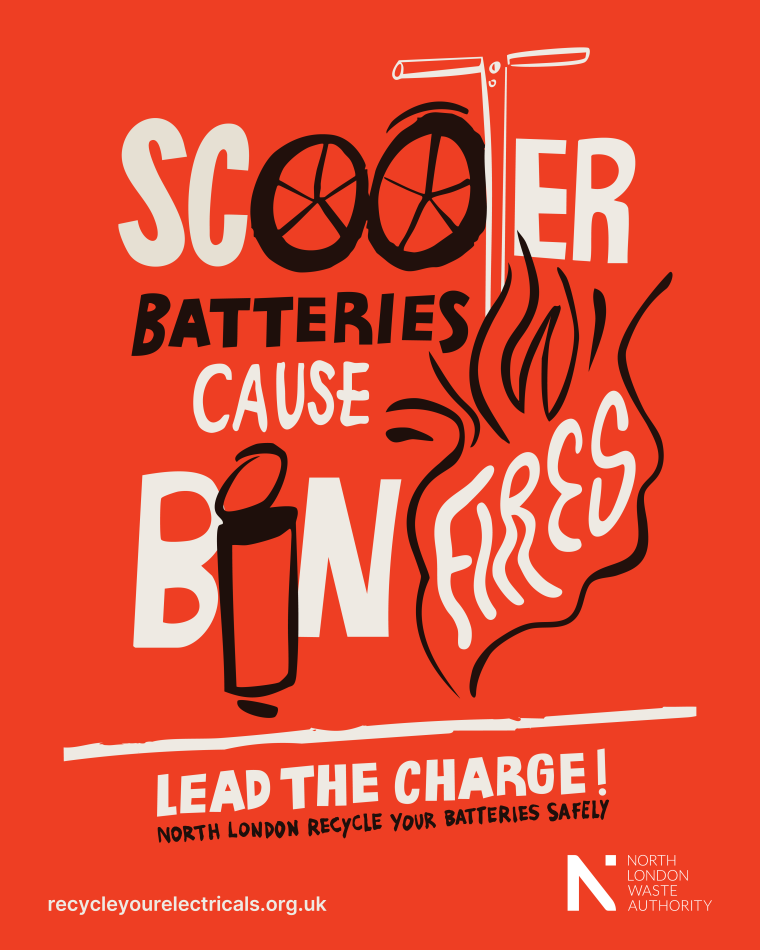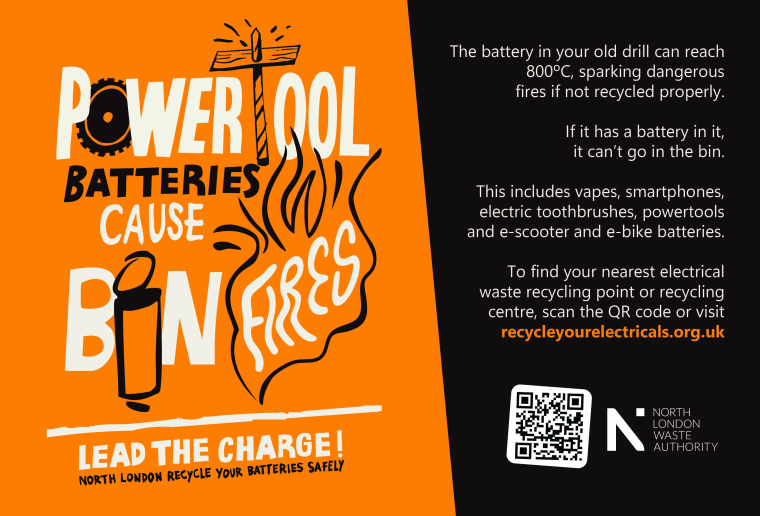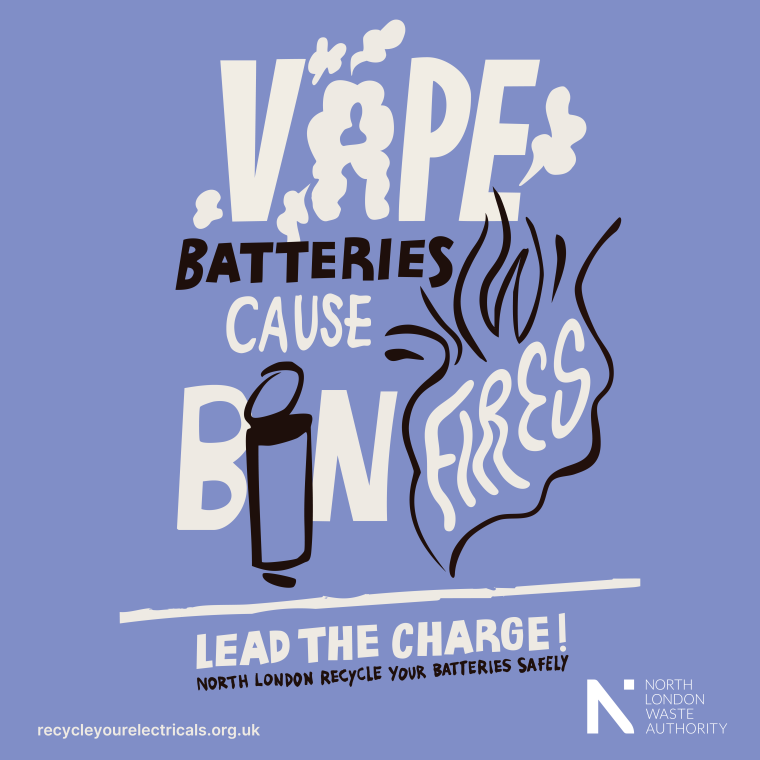Here’s a riddle for you: what do electric toothbrushes, smartphones, e-scooter batteries, vapes and power tools have in common?
They are the five major culprits North London Waste Authority (NLWA) has identified as being the most common e-waste items incorrectly thrown in general waste – each presenting a major fire risk. All of them feature in NLWA’s eye-catching new campaign, also supported by London Fire Brigade, to help people safely recycle their electrical waste and batteries.
Lithium-ion batteries (found in rechargeable electricals like phones and laptops) can reach up to 800 degrees when they overheat. This is hotter than the surface of Mercury and even some molten lava.
This means old electrical items are a huge fire risk if they are incorrectly thrown away in general waste. NLWA has seen a significant increase in fires at our facilities in the past few years, rising from six in 2023 to 13 in 2024, largely driven by e-waste items (including vapes).
NLWA’s new campaign, Lead the Charge, helps people understand the fire risk of throwing away old electricals and explains how to recycle batteries and e-waste safely. Residents can recycle electrical waste at any of north London’s reuse and recycling centres, or at any on-street e-waste bank or retailer collection point, all of which can be found on the Recycle Your Electricals website.
The campaign supports NLWA’s focus on reducing dangerous battery fires at waste facilities, one of the five key actions outlined in our recently published Call to Action.
NLWA Chair Councillor Clyde Loakes said: “We’re really excited about launching our new Lead the Charge campaign. Throwing electricals or batteries in general waste doesn’t just stop them from going into recycling – it creates a serious fire risk that puts our staff, vehicles and facilities in danger. This campaign will help us keep everybody safe, while also ensuring valuable metals and plastics are recycled into something new.”
The campaign is also being supported by London Fire Brigade (LFB), with the fire risk of lithium-ion batteries a major concern for the organisation. London Fire Brigade Deputy Assistant Commissioner for Prevention and Protection, Richard Field, said: "We’re pleased to be working with North London Waste Authority on this growing issue.
"Lithium-ion battery fires are a major risk and we are attending fires regularly involving waste in bin lorries. We’ve also attended significant fires at waste disposal sites across the capital, which we suspect are caused by lithium-ion batteries.
“These fires can be very time consuming for our firefighters and often require a high level of resources to extinguish. We’ve also seen the detrimental environmental and societal impact these fires can have on local communities.
“We urge people to check with the retailer or your local authority's website for the safest way to dispose of lithium-ion batteries in your area and reduce the risk of fires occurring.”





